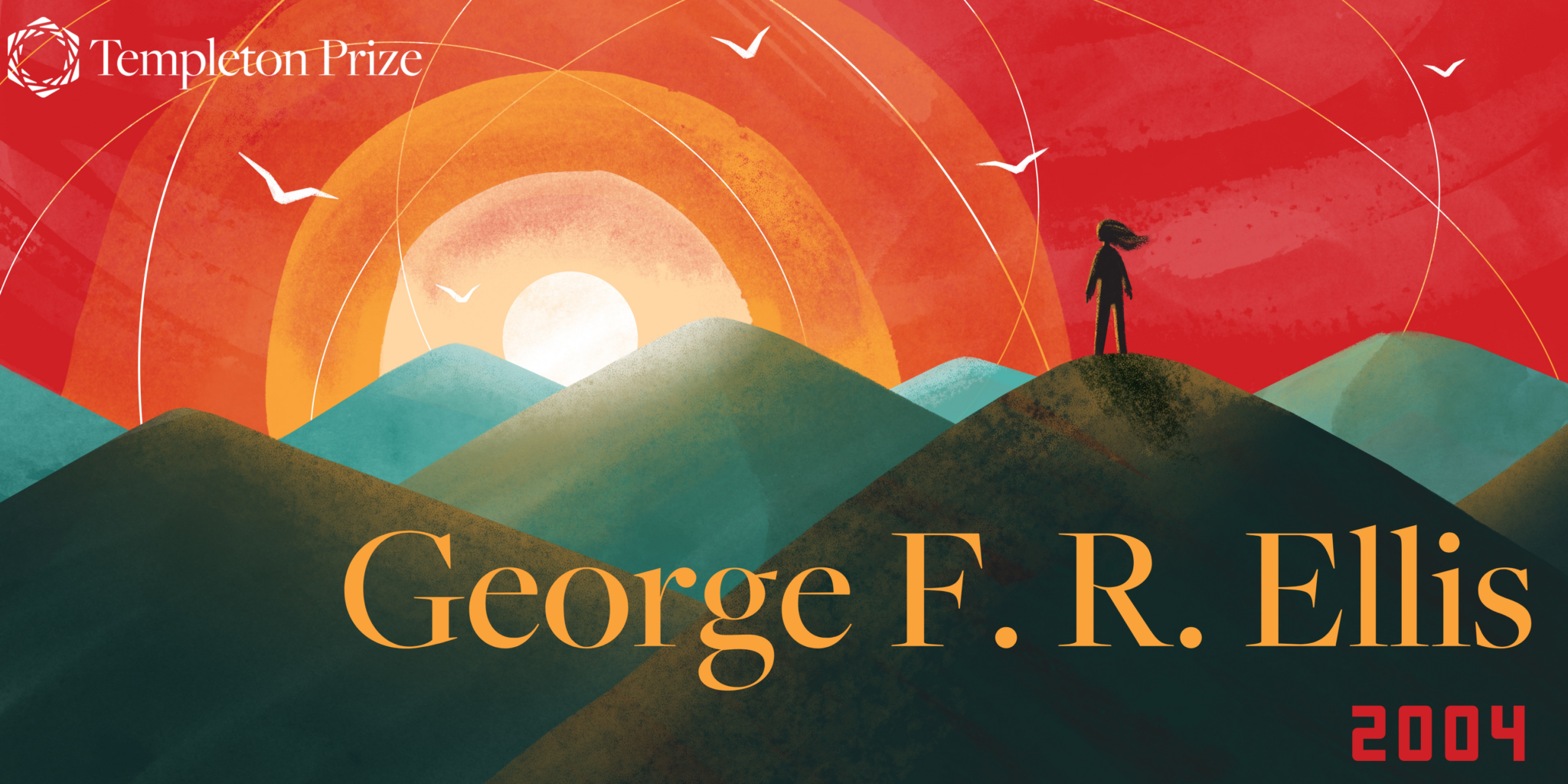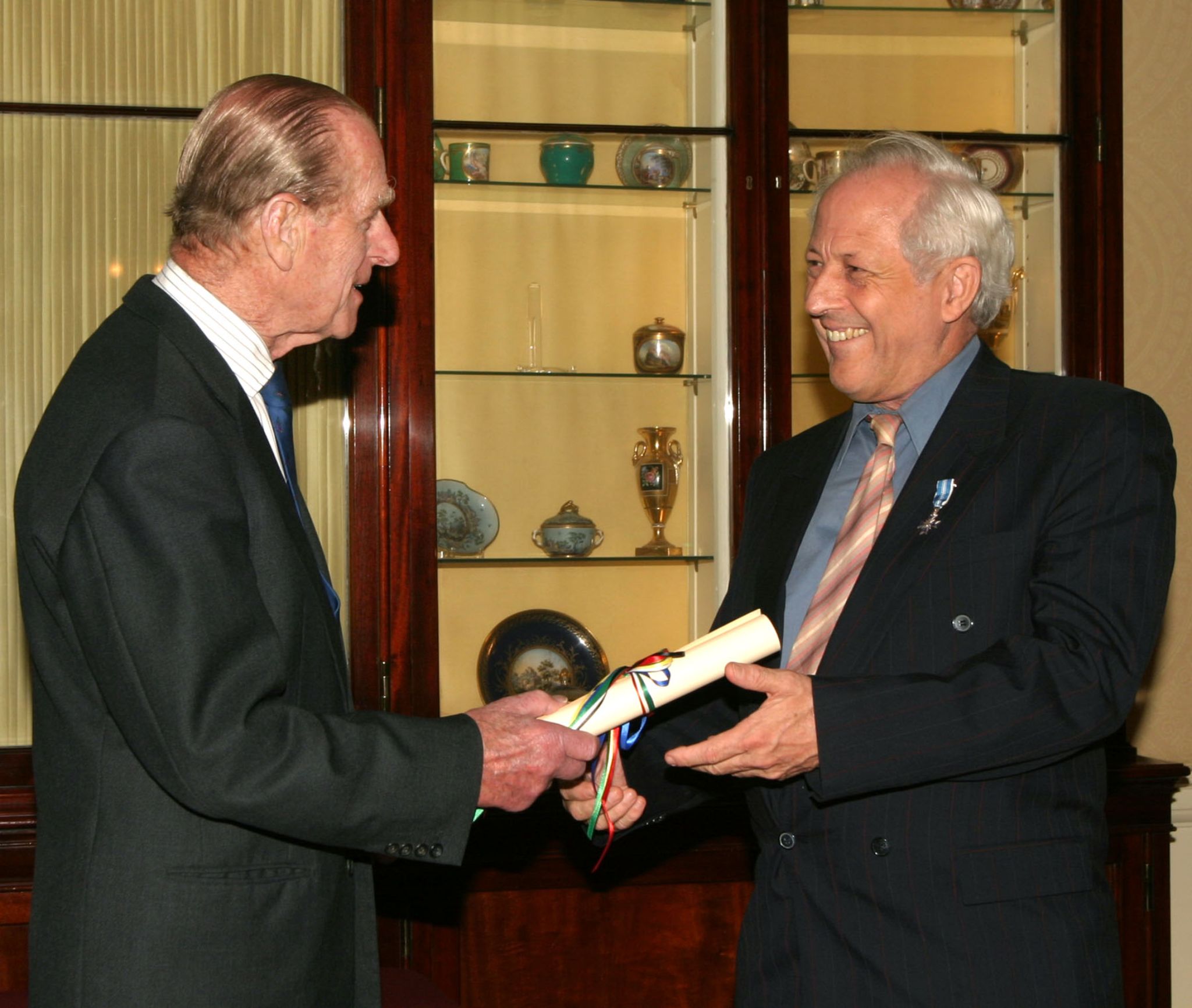In 1973, the first Templeton Prize was given to Mother Teresa. In 2023, we celebrate the 50th anniversary of this award. Over the next 52 weeks, we will highlight each of our laureates and reflect on their impact on the world. From humanitarians and saints to philosophers, theoretical physicists, and one king, the Templeton Prize has honored extraordinary people. Together, they have pushed the boundaries of our understanding of the deepest questions of the universe and humankind’s place and purpose within it, making this (we humbly think) the world’s most interesting prize.
George F.R. Ellis is a physicist and cosmologist who has made groundbreaking contributions to the fields of science and philosophy. Ellis has investigated questions such as whether or not there was a start to the universe, if there is one universe or many, the evolution of complexity, and the functioning of the human mind, as well as the intersection of these issues with areas beyond the boundaries of science.
Ellis was born on August 11, 1939, in Johannesburg, South Africa. His academic journey began with a keen interest in mathematics. He pursued studies at the University of Cape Town and later earned his doctorate in applied mathematics from the University of Cambridge. His early work in mathematical physics laid the foundation for his future explorations into the cosmos. As he progressed in his research career, Ellis’s work delved into the nature of the universe, the origin of galaxies, and the fundamental principles governing the cosmos. His collaborations with physicist Stephen Hawking led to illuminating theories that advanced our understanding of the universe’s evolution.
Recognizing that scientific advancements carry societal implications, Ellis has advocated for ethical and moral considerations in scientific endeavors. His capacity to bridge the gap between science and philosophy earned him a reputation as a thought leader who could explicate complex questions from multiple angles.
Ellis was awarded the Templeton Prize in 2004 for in recognition of his pioneering explorations into the cosmos as well as his remarkable propensity to balance the rationality of evidence-based science with faith and hope, a view shaped in part by his firsthand experiences in South Africa as it peacefully transformed from apartheid to multi-racial democracy.
-

George F. R. Ellis 2004 Templeton Prize Laureate and HRH Prince Philip, Duke of Edinburgh
HRH Prince Philip, the Duke of Edinburgh, awarded the Prize to George F. R. Ellis in a private ceremony at Buckingham Palace.
“We are at a stage in human history when, as we gaze with amazement and appreciation at the incredible progress of science in the last century, we can also start to see clearly some of the limits to what science can achieve. The way in which science and religion by and large complement each other is becoming ever clearer, as are the natures of the various points of tension between them, and some possible resolutions of those tensions.”
– George F. R. Ellis

